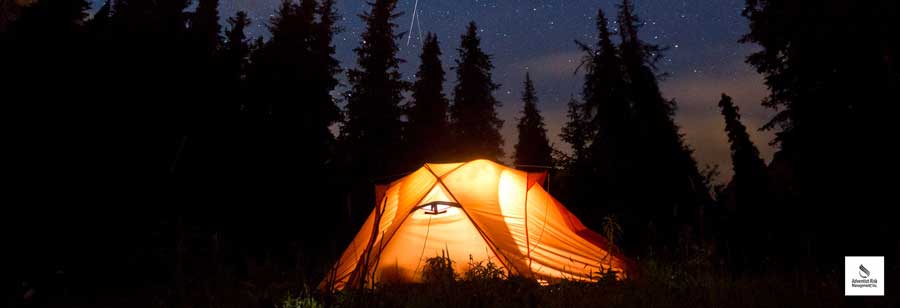Camping is much like embarking on an adventure. I was guaranteed at least three campout adventures a year, growing up and attending Pathfinder trips and camp meetings. My first tent was a little blue pup tent built for two adults or, as my dad would say, “one man and his stuff.”
The first place I ever pitched my tent was in my parents’ living room. My dad took the time to explain how to put up a tent, and my siblings and I took turns setting it up and taking it down. By our first Pathfinder camping trip, we were the only kids who could pitch our tents without help.
But not every camping trip is successful or incident-free.
On my first camping trip, rainwater slipped between the tarp underneath my tent and the tent bottom, creating a fun waterbed effect until the water seeped through and drenched my belongings. On another camping trip, it was so cold that the bag of ice we left on top of the cooler stayed frozen all weekend. Each time something went wrong, we were prepared to handle it.
These are stories you want to bring back from a camping trip—everyone came prepared, had a great time, and returned home safely. If your ministry is planning a camping adventure, here are some reminders to keep your group safe.
Have Superior Supervision
The number and expertise of supervising adults you need will change depending on the number of children attending and the risk level of the activities planned. For general camping activities, have a minimum of one adult for every eight children. For high-risk activities, have a minimum of one adult for every four children.Download ARM's Youth Supervision Guidelines info sheet to learn more about superior supervision.
Whether your camping group is comprised of youth or is an adult-only camping trip, use the buddy system, so each person has a partner. No one should venture off alone. If something happens, one person can go for help or administer first aid.
Train Before The Trip
Provide necessary training before the camping trip and review these areas with your group:- Basic first aid: All staff members should be CPR-certified and First Aid trained.
- Basic camping skills: How to set up and take down a tent, how to safely operate cooking equipment, use of knives and hatchets, what kind of sleeping equipment to bring, guidelines for camp sanitation, guidelines for campfire safety, what is the expected outdoor etiquette and what to do when lost.
- Dressing and preparing for the environment: Review the expected weather conditions and animal risks (example: mosquitoes, ticks, bears, mountain lions, alligators, etc.) with all participants.
- Planned activities for the campout: Review any necessary gear or training for those activities.
Cover Campfire Safety
Teach your group to:- Clear the ground within an 8-foot (2.5 meters) sphere of the campfire location.
- Keep flammables (fuel, lighters, matches, extra wood) eight feet (2.5 meters) away from the fire location.
- Keep enough water in an easily accessible location for immediate use to extinguish the fire.
- Supervise the fire at all times. Never leave the fire unattended and always extinguish the fire completely before zipping into your tents for the night.
- Only place proper fire fuel in the fire when instructed.
- Be mindful of other campers when using sticks or extendable forks to cook items over the fire.
Account for Accidents
Prepare ahead of time to respond to any accidents.- Bring an emergency kit customized for your trip (including a first aid kit).
- Know how to get to local emergency care facilities, including directions and contact information, and have an emergency plan in place to respond should something happen.
- If an accident occurs, use ARM's Accident Incident Report Form to record any information you will need to share later with your insurance company.


